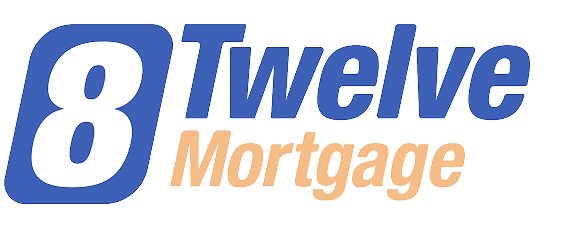
Summary
- Closing costs in Ontario typically range from 3–5% of the home’s purchase price—but can be far higher for pre-construction units. You’ll need to budget for land transfer taxes, legal fees, title insurance, and potential municipal charges, which together can add $10,000–$40,000 (or more).
- First-time buyers can save big through tax rebates—but only if they qualify and apply correctly. Ontario and Toronto both offer partial or full land transfer tax refunds, which can offset thousands in fees.
- Pre-construction buyers face unique closing costs like development levies, utility hookups, and occupancy fees. These extra charges are often unpredictable and can exceed $100,000, making it crucial to read your contract carefully and ask about caps.
Shopping for your first home? You’ve probably gone through mortgage pre-approval, bank meetings, and serious saving efforts to make up a down payment.
And once you close the deal, you usually have a couple of months to provide the rest of the down payment and mortgage amount, meaning your closing date might be a month, two, or more after purchase. Hold your horses — you still need to pay for closing costs.
Remember, these are separate from your down payment. Closing costs vary wildly, anywhere from $10,000 to $40,000. And some Ontario residents have been shocked to learn of pre-construction closing charges of over $100,000!
But still, you might wonder:
- What should I budget for closing costs in Ontario?
- How much are closing costs when buying a house, condo, or pre-construction?
- Is there any way to lessen closing costs?
Welcome to Closing Costs 101 — class has started!
What are closing costs?
Closing costs are the extra costs a homebuyer incurs on top of a property price when closing a real estate purchase. Unfortunately, this doesn’t include mortgage insurance (if necessary), down payments, or interest.
Have you ever purchased concert tickets online and felt ripped off by the endless fees at checkout? Closing costs are a similar deal. Admin fees here, registration fees there, and the dreaded land transfer tax all take a heavy toll on your budget. Frustratingly, it’s hard to pinpoint exact numbers for closing costs.
Experts recommend setting aside 3-5% of the purchase price. For example, the closing costs on a $650,000 one-bedroom condo in Etobicoke will run you somewhere between $19,500-$32,500.
It’s especially important to note the biggest fish in the closing costs sea: you'll need to pay land transfer tax for both Ontario and Toronto (more on that later).
Here are some other definitions you'll want to get familiar with:
- Land titles: The legal record of who owns a property, and any charges (like liens or mortgages) on it.
- Title insurance: Insurance that protects a homeowner against losses associated with the title of their property. This can include things like unpaid taxes or fraudulent ownership claims.
- Home appraisal: An assessment of a home's value by a professional appraiser to determine how much it is worth in the current market.
- Appraisal fee: The cost for an appraiser to assess the value of your home. This is typically paid by you as the buyer.
Now that we have that out of the way — what exactly do closing costs entail?
Land transfer tax
You have two types of land transfer tax to manage in Toronto:
- Provincial land transfer tax (Ontario)
- Municipal land transfer tax (Toronto)
It’s not enough to pay for the property. Ontario requires land transfer tax from anyone who “acquires a beneficial interest in land.”
Here’s how you can calculate Ontario land transfer tax using your property price:

Ontario Land Transfer Tax Percentage by Property Cost
The same goes for municipalities. Toronto’s Municipal Land Transfer Tax (MLTT) has a similarly tiered calculation:

Note: The figures shown are for single-family residential properties.
You’re responsible for both provincial and municipal land transfer tax. Typically, you’ll split these costs if you purchase your home with a partner. If you’re a first-time homebuyer, however, you could be eligible for a partial or complete land transfer tax refund.
Legal fees
Every real estate transaction requires a real estate lawyer’s services. You’ll have to pay them to draft the title deed, compile documents, and take care of various administrative fees. Your lawyer will put together a receipt for you listing all of these costs, usually under separate umbrellas from their own fees (which is typically between $500-$3,000).
Property tax
Some home sellers may have paid the year’s property tax despite selling before year-end. For example, if a seller pays their final annual property tax bill in early autumn and you acquire the home in November, you’ll have to reimburse the seller for some of the property taxes paid.
Deed and mortgage registration fees
Mortgage lenders (like banks) impose mortgage registration fees to officially register the mortgage under your name. This official registration allows them the legal right to repossess your home if you default on the loan. Mortgage registration fees are typically in the range of $100-$200.
Title search, title insurance, and subsearch
A title search is the legal process where a lawyer researches any other listed names on the property title other than the seller. It’s kind of like a background check revealing any liens or mortgages registered that you don’t know about.
This is one of the most important parts of your closing process. Chances are, it’ll come up clean. But if you skip the title search, you risk some third party trying to reclaim your property!
Title search and subsearch cover the research, while title insurance covers you from any legal costs.
The searches will cost you between $150-$300, while title insurance premiums could add up to $1,000 (one-time fee).
Municipal admin fees
On top of municipal land transfer tax, the City of Toronto will charge you a fee to charge you the tax (weird flex, we know). That will add another $50-$100 to the bill.
Document production
These are often included in your legal fees, but might be charged separately at about $50-90.
Pre-construction closing costs
Closing costs reach a whole new level of bananas if you’re buying a pre-construction house or condo in the GTA.
The annoying part is that it’s difficult to pinpoint figures for these as well. You’ll have to pay the closing costs mentioned above, plus some special, pre-construction-only costs.
Here’s a short breakdown:
- Development charges: These are government levies paid by the developer and passed down to the buyer. RateHub estimates these to max at $4,000; however, one real estate agent cites them as high as $20,000. You can technically establish a cap in your purchase agreement, but the developer doesn’t have to accept it.
- Utility hook-up fees: Pre-constructions are brand new builds, requiring brand new hook-ups to hydro, gas, and water. A modest estimate for these fees would be $500-$2,00 but some homebuyers report builders charging in the tens of thousands for this.
- Assignment fees: Say you purchase a pre-construction with two years left until occupancy. In that time, you might have a change of heart and sell it (assign it to someone else). While developers might have stringent rules for doing so, like prohibiting the listing from large realtor sites, you can usually still manage. Just expect to pay a couple thousand dollars in assignment fees, though. Plus, you’ll have to pay capital gains on any of the appreciation profits.
- Occupancy fees: This is the most unsettling closing cost in the pre-construction world. If your pre-construction is ready for move-in before the title transfer and mortgage registration takes place, you’ll have to pay the equivalent of monthly rent to the developer. This could last as long as a few months to two years.
Buy your home with confidence
Let's go over some key takeaways:
- Closing costs in Ontario typically range from 3–5% of the home’s purchase price—but can be far higher for pre-construction units. You’ll need to budget for land transfer taxes, legal fees, title insurance, and potential municipal charges, which together can add $10,000–$40,000 (or more).
- First-time buyers can save big through tax rebates—but only if they qualify and apply correctly. Ontario and Toronto both offer partial or full land transfer tax refunds, which can offset thousands in fees.
- Pre-construction buyers face unique closing costs like development levies, utility hookups, and occupancy fees. These extra charges are often unpredictable and can exceed $100,000, making it crucial to read your contract carefully and ask about caps.
Congratulations! You are now prepared for the costs of buying a home in Canada and can make informed decisions about your purchase.
Frequently Asked Questions
What are the most common closing costs when buying a home in Canada?
The most common closing costs when buying a home in Canada include land transfer taxes, legal fees, home inspection fees, and title insurance. Other potential costs may include appraisal fees, mortgage default insurance premiums, and property tax adjustments.
Are there any ways to save on closing costs when buying a home in Canada?
Yes, there are some strategies you can use to help save on closing costs when buying a home in Canada. For example:
- Negotiate with the seller to cover certain closing costs
- Shop around for the best mortgage rate and terms
- Choose a lawyer or notary who offers competitive rates
- Take advantage of first-time homebuyer programs or incentives offered by the government
It's important to note that some of these strategies may not be feasible for every situation, and it's always best to consult with a professional before making any decisions.





